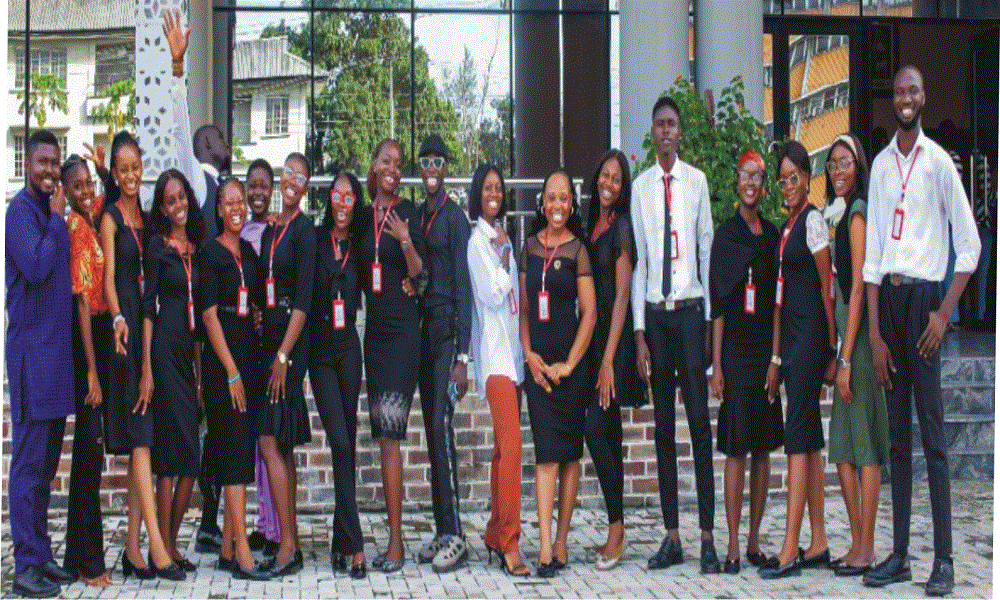Lincgreen Climate Change Initiative Inducts New Students

His Eminence Diolu Tobechukwu Prosper, co-founder of the Lincgreen Climate Change Initiative has inducted a new set of students at the Lincgreen Climate Change Academy, underscoring the urgency for Nigeria to lead its own climate adaptation through education, research, and local development.
“Africa is at the forefront of the climate crisis, facing severe challenges like heat waves, droughts, floods, and the displacement of millions of people. Despite contributing the least to climate change, we suffer its worst impacts. The promises of support from developed nations have repeatedly fallen short. Relying solely on external assistance is not a sustainable solution. As we advocate for justice, we must also take charge of our own salvation,” Tobechukwu stated.
He stressed the importance of moving away from a victim mentality, despite the injustices faced, and focusing instead on innovating and creating local solutions. “The corporations responsible for emissions are profit-driven, and we cannot always rely on them for solutions. We must become the change the world looks up to in the fight against climate change,” he said. “By localizing our impact first, we can create sustainable solutions that address our specific needs before expanding to make a global difference.”
The Lincgreen Climate Change Academy, in partnership with Dr. Obuzor Mezewo of Janikoba Life Touching Foundation, Dr. Renuka Thakore of Global Sustainable Futures (GSFN), and Dr. Saheed Adebisi of the Global Scholars & Leaders Support Network (GSLSN), aims to build a new generation of passionate climate justice advocates. Using digital tools and training modules from UNITAR and the UNFCCC, the Academy equips young people to understand climate science, policies, and adaptation strategies relevant to Nigeria.
“At Lincgreen, our focus is on training, reinforcing, and empowering young people to understand the intricacies of climate science and policy, especially in the context of local communities in Nigeria,” Tobechukwu added. The Academy started with over 20 members, and its first cohort saw eight individuals complete the introductory course on Climate Change and Human Rights. The certified graduates from the first cohort include Favor Asian, Esther Edubio, Diolu Praise, Joy Simon, Okparanta Ogechi, and Goodness Ologun, who received certificates from UNITAR and GSFN. “Our journey doesn’t end here; this is just the beginning. Our vision is to expand our reach, train more advocates, and create a ripple effect of change.”
The partnerships with leading climate organizations and the use of globally recognized training tools enable Lincgreen to translate complex climate conversations into practical actions that drive local change. Tobechukwu emphasized the importance of educating the youth on climate change, human rights, carbon emissions, the Paris Agreement, COP negotiations, and climate adaptation strategies.
“Research and development are the keys to fostering climate resilience in Africa. Education is the foundation of this effort. We need to invest in knowledge, empower young people, and create systems that allow them to apply what they learn to real-world problems,” he said. “Climate action is not just about survival; it’s about empowerment. By investing in our youth and reinforcing the importance of research and localized innovation, we are taking our future into our own hands.” The Lincgreen Climate Change Academy aims to build a generation of solution-driven advocates who can lead the way in climate adaptation and resilience. As Tobechukwu concluded, “We cannot afford to wait for the rest of the world to save us—we must save ourselves, and education is our most powerful tool. With the passion and knowledge of young people, we will drive sustainable solutions, turning Africa from a vulnerable victim of climate change into a resilient leader. Our work is just beginning, and we will continue to push for the education, research, and development necessary to build a sustainable future.




